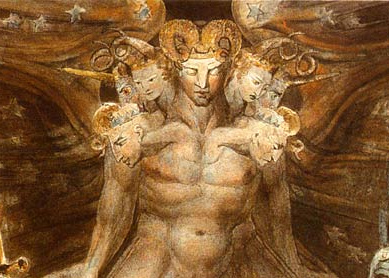Well, this book almost didn’t get into the Bible, the Book of Revelation. I mean, after the prophecies didn’t turn out the way the Book of Revelations is. You know, it says that the Roman Empire’s evil and Jesus is going to come with armies of angels and destroy the world—didn’t happen. Instead, the Roman Emperor became a Christian; and then you had a Christian Roman Empire. And so, many Christians just pushed it aside and had no use for it; but, people who had been persecuted really loved this book because it talks about confronting impossible odds, like a huge empire that hates you and wants to kill you and dealing with the worst threats they can offer and, nevertheless, having the sense that you can win. You can win that fight. So, it gave hope to a lot of people. But anyway, I just found the book utterly fascinating and the biggest question for me is why are people still reading it?
One reason people are still reading it is that, although the author is concerned with things that are happening in his own time, in the first century; he uses these images, like a great, red monster with seven heads and seven crowns on its heads and a fabulous beast or the image of a whore, sort of, drunk, drinking out of a golden cup and what she’s drinking is blood of innocent people; I mean, very graphic images that artists have always loved. And because it’s so dream-like, so vague, these images, monster, whore, beasts, you know, angels and demons and creatures that look like locusts and something out of, out of, you know, science fiction. People have been able to read any conflict they have, into that book.




